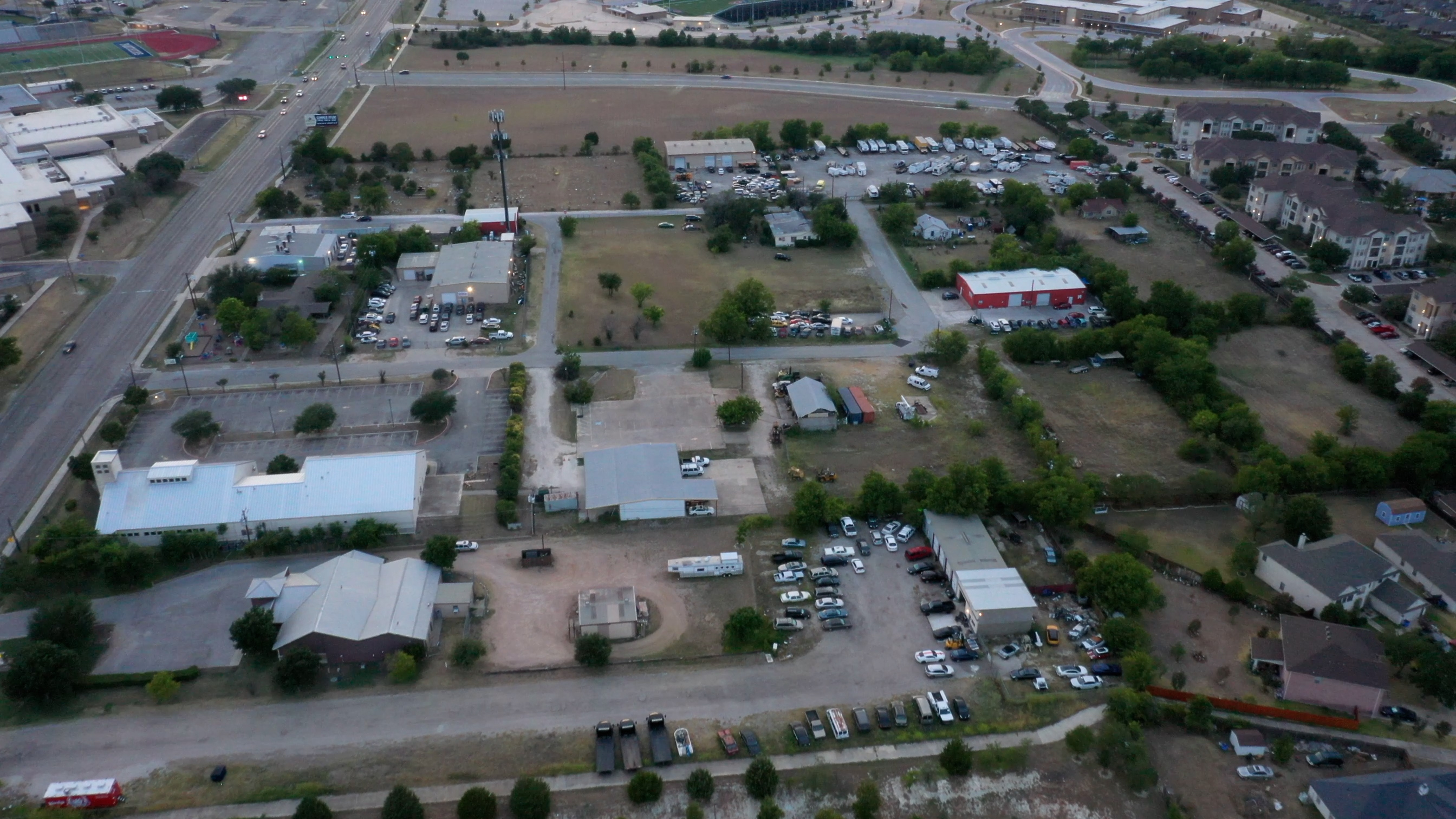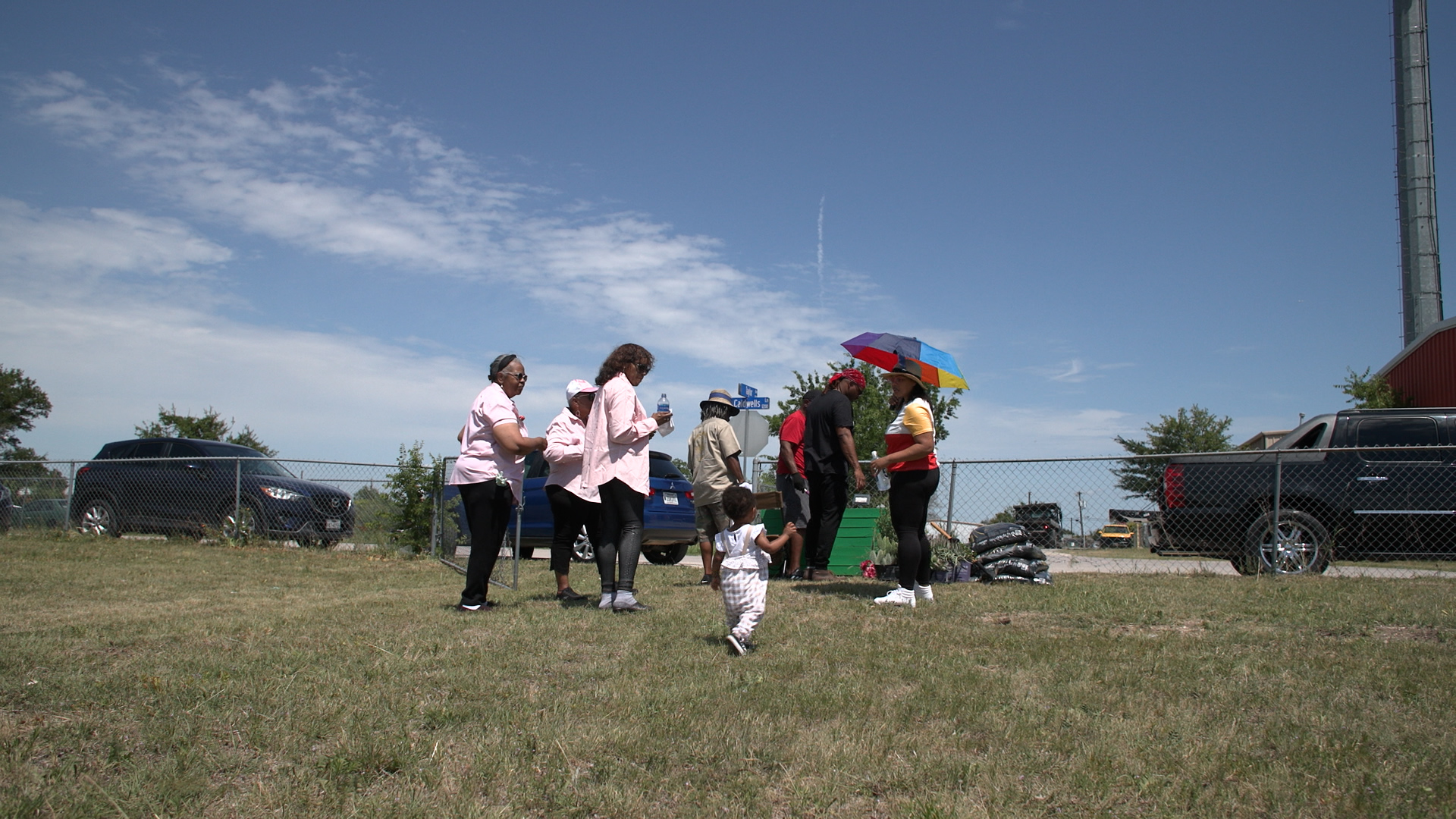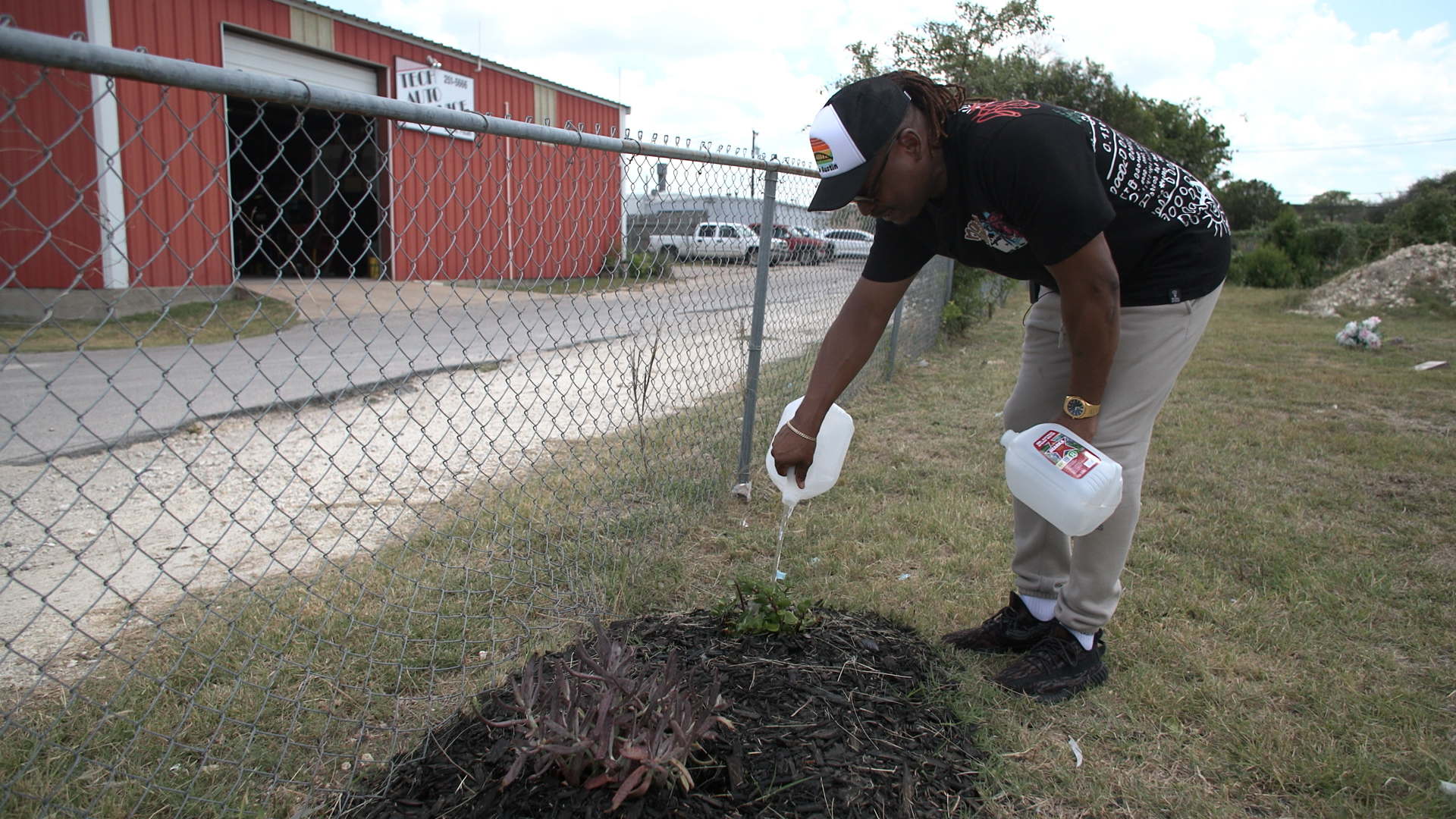Unearthing History
When Black Pflugerville Vice President Cliffton L. Styles first came across the lot, it was covered in brambles. The grass was knee-high, the earth rough and uneven. Cropping up throughout the area like errant flowers were small electrical flags.
“We didn’t realize they were graves,” Styles says. “And then the stories start to come out.”
Styles had stumbled upon Russel’s Beautiful Place to Rest, also known as the St. Mary’s Cemetery. It resides within Pflugerville’s Historic Colored Addition. Like many historically Black cemeteries across the country, the space had become unkept as social and political forces pushed and pulled at the community. But grassroot groups and city leadership have taken it upon themselves in recent years to maintain the area, driven by a need to preserve this historically Black space.
“At least we can honor these spaces, preserve them, and let the families tell those stories,” Styles says. “We'll never be able to do anything if that's just a covered field.”
The entire Pflugerville Colored Addition is just over 16 acres. Sold to Black families who were not allowed to live in city limits, the area became an enclave for the Black community, consisting of a school and two churches.
The Historic Colored Addition dates back to 1910. Black residents were not yet allowed to live in Pflugerville. A local farmer sold lots that were, at the time, outside of the city limits to five Black families. These pioneers built a Black enclave, complete with a school, two churches and a cemetery. But the number of residents began to dwindle and by the mid ‘80s the population of the addition sat at three.
“The families moved on,” Styles says. “When families leave, obviously those properties come up for sale or they're just dilapidated and the city took those spaces back over.”
That’s a common trend for historic Black cemeteries across the country. Many sites have been vandalized, used as dumping grounds or paved over for roads and developments, an issue many advocates see as a continuation of disregard for Black lives and history. Restoration and repairs often fall to descendants and community groups like Black Pflugerville. Styles’ first priority when he discovered the space was to find a Black-owned lawn care service to come out and clean up. Geralmy Carter, owner of Carter’s Services and Landscapes, arrived to find an area in need of expert assistance.
“This was a little bit beyond the measure of getting a couple guys out here with some mowers,” Carter says. He has been maintaining the cemetery since 2015. He says while he often volunteers for service projects, this one felt especially important to him.
“Being a Black man in the community, and seeing the Black community trying to work to keep this thing looking good, I owe a part to that,” he says. “I think it’s just important to try and keep it up."
Some groups have volunteered to dig up documents along with dirt. The Capital City chapter of the Top Ladies of Distinction, Inc. are looking into how they can help with getting the site designated as a Historic Texas Cemetery. Debra Owens is the former president of the chapter, and she hopes projects like this will inspire members to help preserve and revitalize other historical Black cemeteries.
Volunteers stand near the gate of the cemetery. “That preservation of that space is keeping our story, our history alive here,” Styles says.
“A lot of us have family plots … and we kind of let them go by the wayside because they were in areas like this, far away, and not everybody knew where they were,” Owens says. “But if we can restore something, maybe we’d have families that would want to continue to bury their loved ones in the area they know is historic.”
Styles says these are just a few of the groups that have assisted with everything from cleanup efforts to helping fund a radar service to find unmarked graves. But funding is a consistent issue.
“Everything's purchased out of my pocket,” Styles says.
Black Pflugerville isn’t alone in that effort. Most individuals or groups looking to preserve historic cemeteries have to come up with their own funding. On their website the Texas Historical Commission outlines cemetery preservation best practices. Their funding suggestions include looking through bank records for unused trusts, forming a nonprofit and soliciting donations from descendants buried at the cemetery. They also suggest reaching out to city and county governments for funding assistance. Bills have been introduced in the U.S. House and Senate that would establish grant opportunities for restoring Black cemeteries, but they have not yet been passed into law. Styles says he is not expecting government assistance.
“My big challenge is trying to convince folks at the city council level that this is something they need to invest in,” Styles says. “I knew that that would be the main challenge that we'd face just because of funding, you know?”
Black Pflugerville Vice President Cliffton L. Styles waters plants placed within the cemetery. When Styles first came across the cemetery, it was so overgrown that he couldn’t see the headstones.
According to Pflugerville Place 4 Council Member Rudy Metayer, about $5.7 million has been allocated for improvements to the entire Historic Colored Addition. Council Member Metayer says right now they’re gathering data on improvements. He’s hopeful that by next year work will begin on projects like flood prevention and road improvements, but the city has opted to not manage the cemetery itself. Metayer says there are “statutory standards” they would be required to meet that would fundamentally change the cemetery and not preserve the history there. Improvements, he says, are being driven by community input.
“We want to respect the families and the loved ones who are buried at the cemetery,” Metayer says. “I think that moving forward, the story is that you have a city embracing its past, realizing the mistakes that were made, and trying to make sure it doesn’t happen in the future.”
Past injury to the Black community is on Style’s mind as well. But he hopes by digging into this space, a piece of Black history can be preserved for future generations to rediscover.
“There’s a trauma that I think we all subconsciously have,” he says. “We can't go back and rewrite the history books, but at least we can preserve our spaces because the history is in the ground.”
Community journalism doesn’t happen without community support.
Got story ideas, advice on how we can improve our reporting or just want to know more about what we do? Reach out to us at news@klru.org.
And if you value this type of reporting, then please consider making a donation to Austin PBS. Your gift makes the quality journalism done by the Decibel team possible. Thank you for your contribution.
More in Culture:
See all Culture posts








Contact Us
Email us at news@klru.org